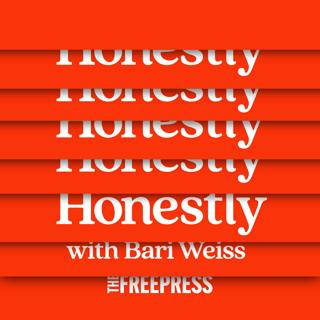
The Tiger Mom Won't Stop Roaring
It’s hard to think of an institution in American life that’s more broken than higher education. As universities have abandoned core liberal principles like free speech, bending to students’ demands for censorship, perhaps the most striking feature of all has been the cowardice and silence of tenured professors. Yale Law professor Amy Chua is not one of them. Since Chua wrote her bestselling parenting memoir Battle Hymn of The Tiger Mother in 2011, she has been no stranger to controversy. She wrote a book, The Triple Package: How Three Unlikely Traits Explain the Rise and Fall of Cultural Groups in America, about why certain cultural groups succeed—and was accused of “cultural racism.” She refused to recant her support for Brett Kavanaugh—and was accused of misogyny. The list goes on. None of this has stopped her from speaking her mind. Today, why Amy Chua remains an optimist in the face of unprecedented political tribalism; how her students continue to inspire her even as she’s lost faith in Yale; and why she did, indeed, threaten to burn her daughter’s stuffed animals if she didn’t practice her piano perfectly. Learn more about your ad choices. Visit megaphone.fm/adchoices
2 Feb 20221h 17min

An Imam Blows the Whistle on Muslim Antisemitism
As a boy growing up in Turkey, Abdullah Antepli thought hating Jews was normal. He read Mein Kampf before he was 15. His parents gave him a children's version of The Protocols of the Elders of Zion. He burned Israeli flags. Today, he is an imam, a professor at Duke University, and, as he puts it, a recovering antisemite. Imam Adbullah has been fearless about blowing the whistle about rising antisemitism in the Muslim community. In the wake of the recent hostage-taking at the synagogue in Colleyville, Texas, he tweeted: “Houston, we have a problem!” He wrote, “we need to honestly discuss the increasing anti-semitism within various Muslim communities.” Today, on Holocaust Remembrace Day, a conversation with a man who has paid a heavy personal price for working to eradicate Jew-hate and to promote peace between Muslims and Jews. Learn more about Imam Abdullah’s work here. Learn more about your ad choices. Visit megaphone.fm/adchoices
27 Jan 20221h 19min

The Aftermath Part 2: The Haves and The Have Nots
At this point in the pandemic, one group of Americans generally gets to show their faces. The other still does not. One group orders groceries from Amazon, while the other packages it. One group enjoys take-out. And the other delivers it in the rain. Today, in part two of my conversation with ProPublica journalist Alec MacGillis, we unpack the ways the pandemic has exacerbated the already enormous divide between the haves and the have nots. MacGillis discusses his recent book, Fulfillment: Winning and Losing in One-Click America, and how Democrats became such a big part of what he calls “the Amazon coalition.” We also talk about how the stubbornness of our political and media class—and their insistence on doubling down on short-sighted policies—is already reshaping our politics and culture. If you haven’t yet listened to part one of the conversation, you can do so here. Learn more about your ad choices. Visit megaphone.fm/adchoices
21 Jan 202235min

The Aftermath Part 1: Kids, Schools, and the Crime Surge
As we approach the third year of this pandemic, it’s become painfully clear that the stringent measures we took to mitigate against the virus had all kinds of unintended consequences. For mental health. For the economy. For our cities. And, especially, for our kids. Today, award-winning investigative journalist Alec MacGillis helps us understand the morally urgent costs of school shutdowns on our youngest generations, and how pandemic policies contributed to the crime surge plaguing so many American cities. MacGillis reported on these hidden costs with rigor, diligence and empathy well before the rest of the country caught up and said: hold on, these costs may be too high. (You can read many of those stories here.) Today’s episode is part one of my conversation with MacGillis. Stay tuned for part two, where we’ll talk about his recent book about Amazon, Fulfillment: Winning and Losing in One-Click America, and how Big Tech and progressive policies are accelerating the inequalities that were already running rampant in America. Learn more about your ad choices. Visit megaphone.fm/adchoices
19 Jan 202259min

Bringing Sanity to the Omicron Chaos: Three Doctors Weigh In
Have you hit a wall with Covid? We have. The irrationality of the current policies and conversations surrounding Covid—guidelines that are coming from our public health authorities; rules coming from our schools and our workplaces; and information coming from our media—is making skeptics out of even the most compliant. What gives? Why do things seem so nonsensical? Who should we trust? How can we get back to normal—or at least some semblance of normal? And how can we do it responsibly and safely? To answer these questions, we brought together three doctors who have been islands of sanity in a sea of misinformation and confusion. Dr. Vinay Prasad is an associate professor of epidemiology at UCSF. Dr. Stefan Baral is a professor at the Johns Hopkins School of Public Health. And Dr. Lucy McBride is a practicing internist in Washington D.C., and author of a popular COVID-19 newsletter. This was a live subscriber-only Zoom event, and the thousands of listeners who tuned in had the chance to ask the panelists their most pressing and burning COVID questions. If you want to be able to participate in events like this one in the future, head over to bariweiss.substack.com and hit subscribe. Learn more about your ad choices. Visit megaphone.fm/adchoices
14 Jan 20221h 31min

Humans Are More Resilient Than You Think
We are living in an era in which Americans–especially younger ones–say they are increasingly traumatized. In one recent study, 82% of Gen Z respondents said they regularly felt so sad that nothing could cheer them up. And that was before the pandemic. What is happening? Are things really worse now than they were for the generation that lived through the world wars? Or the Great Depression? And why does it feel–at least in some parts of the culture–that victimhood grants us status? George Bonanno has thought deeply about these questions. He’s a clinical psychologist at Columbia University, where he heads the Loss, Trauma, and Emotions Lab, and he has studied the nature of human resilience for over 30 years. Bonanno’s work with war veterans, 9/11 survivors and more provides an antidote to the idea that humans are fragile or helpless in the face of loss, challenge and grief. Instead, Bonanno claims, when people are exposed to violent or life-threatening events, those events are only “potentially traumatic” and that “a good part of the rest of it is up to us.” His new book is called The End of Trauma: How the New Science of Resilience is Changing How We Think About PTSD. Learn more about your ad choices. Visit megaphone.fm/adchoices
12 Jan 20221h 3min

Investigating January 6th: The Price Liz Cheney Paid
A year ago today, something big happened in Washington. Was it a coup? Was it an insurrection? Was it “the worst attack on our democracy since the civil war,” as Joe Biden said? Who is responsible? Should the former president of the United States, Donald Trump, face criminal charges? Few Republican leaders have been clearer in their answers to those questions–and none have paid a higher price–than Wyoming congresswoman Liz Cheney. Because of her decision to impeach the president, Rep. Cheney went from being the highest ranking Republican woman in Congress to being shunned by her own party and stripped of much of her power. Figures on the left that once called Cheney a “warmonger” and worse are now praising her as a hero. Today, a conversation with Rep. Cheney about why she’s made the choices she’s made, the future of her political career, where the GOP goes from here, and what’s at stake for American democracy. Learn more about your ad choices. Visit megaphone.fm/adchoices
6 Jan 20221h 11min

Replay: America's Cultural Revolution
As the year ends, we want to share where this podcast began and replay our first episode. What does the public shaming of Palestinian immigrant Majdi Wadi — and the boycott of his Minneapolis business — say about who we are becoming? Learn more about your ad choices. Visit megaphone.fm/adchoices
30 Dec 202128min






















